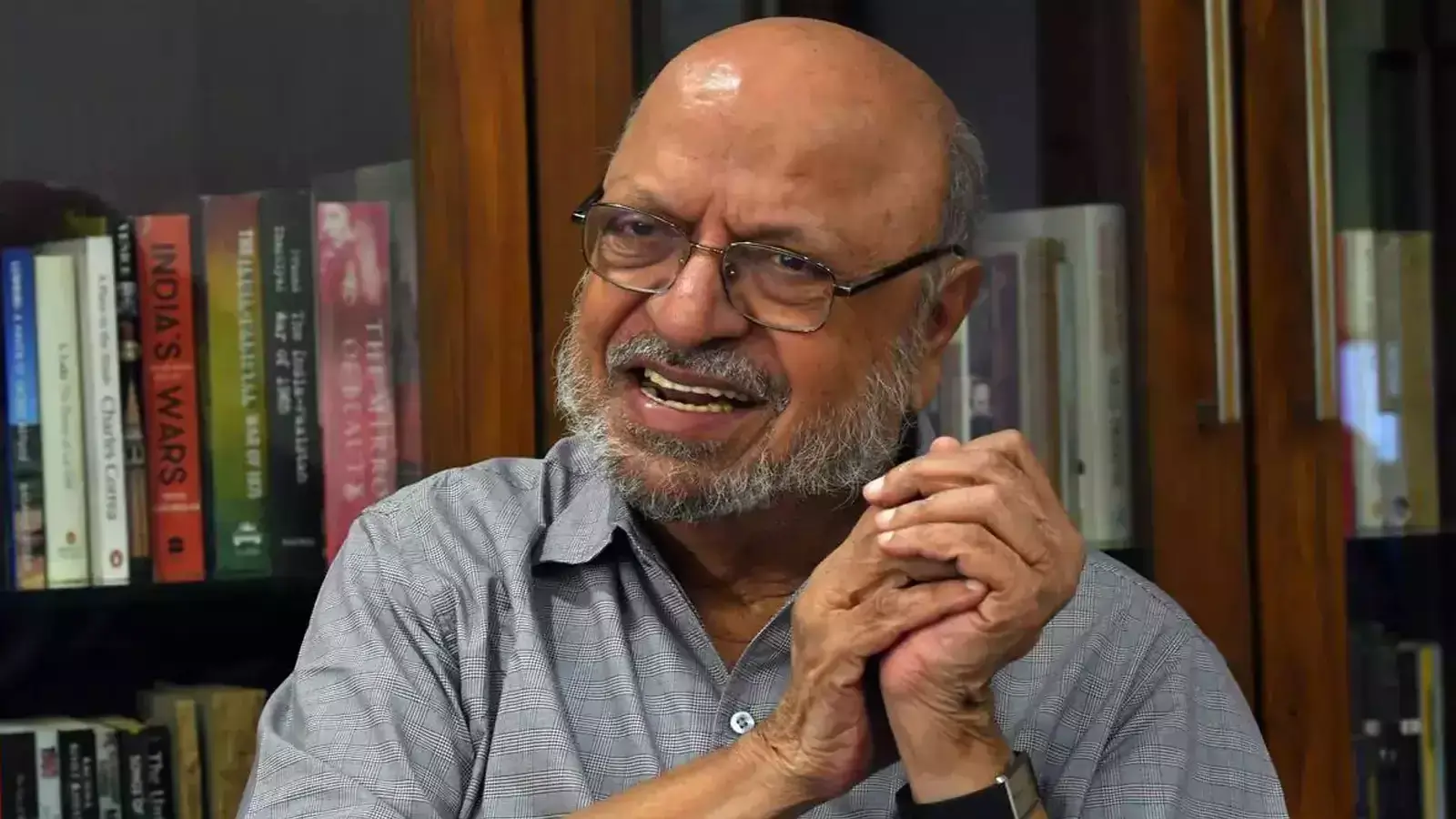Shyam Benegal is one of the most significant filmmakers in Indian cinema. His career, spanning over five decades, has shaped the evolution of Indian parallel cinema. This movement focuses on realism, social issues, and the struggles of marginalized communities. Benegal’s films have explored these themes with great depth, making him a pivotal figure in both Indian and global filmmaking. This article delves into his journey, from his first film to his latest, his achievements, and his lasting impact on the film industry.
Shyam Benegal’s First Film: Ankur (1974)
Shyam Benegal’s first feature film, Ankur, released in 1974, marked a significant shift in Indian cinema. This film launched his career and solidified his place in the parallel cinema movement. Before Ankur, Bollywood films were mostly dominated by commercial narratives. However, Benegal’s debut film introduced a fresh perspective, focusing on rural life and social issues.
Set in a village, Ankur tells the story of Lakshmi, a poor Dalit woman struggling with caste oppression and gender discrimination. The film critiques the feudal social structure and highlights the exploitation of the underprivileged. Benegal’s storytelling style is minimalist. He centers on the internal struggles of his characters, avoiding melodrama. This approach resonated with audiences and critics alike.
Ankur not only earned critical acclaim but also performed well at the box office. This success was rare for films outside the mainstream Bollywood system. The film’s focus on realism and social commentary helped popularize parallel cinema in India. Shabana Azmi and Anant Nag’s strong performances played a significant role in the film’s success.
The film won several prestigious awards, including the National Film Award for Best Feature Film. It helped launch the careers of Azmi and Nag, who would later become major figures in Indian cinema.
Shyam Benegal’s Latest Film: Mujib: The Making of a Nation (2022)
Benegal’s latest film, Mujib: The Making of a Nation (2022), offers a departure from his earlier, more intimate narratives. This historical biopic chronicles the life of Sheikh Mujibur Rahman, the founding father of Bangladesh.
The film spans Mujib’s early years to his role in Bangladesh’s 1971 independence struggle. It portrays the personal and political challenges he faced as a leader. While the film has a larger scale than Benegal’s usual work, it still maintains his trademark focus on human emotions and personal sacrifice.
Mujib is praised for its historical accuracy and sensitive portrayal of Mujib. Although the film moves away from the social realism of Benegal’s earlier work, it still captures the complexities of leadership. The film showcases Benegal’s ability to depict grand political narratives with emotional depth.
What Shyam Benegal is Famous For
Shyam Benegal is best known for his contributions to parallel cinema in India. Parallel cinema, or art-house cinema, emphasizes social realism, complex narratives, and human struggles. In contrast to mainstream Bollywood films, which often focus on entertainment, Benegal’s films address important societal issues.
Benegal’s works explore topics such as poverty, gender inequality, caste discrimination, and rural exploitation. His films tackle these subjects with depth, presenting the lives of ordinary people without melodrama. This focus on realism and social justice became a hallmark of his filmmaking.
Another area where Benegal made a significant impact was the portrayal of women. Films like Bhumika (1977), Manthan (1976), and Nishant (1975) presented strong female protagonists. These women faced challenges against oppressive societal norms, reflecting Benegal’s desire to offer a more nuanced representation of women in Indian cinema.
Benegal is also known for discovering new talent. Shabana Azmi, Smita Patil, Naseeruddin Shah, and Om Puri are just a few of the actors whose careers took off after working with Benegal. He has a unique ability to bring out the best in his actors and present complex, multifaceted characters.
Shyam Benegal’s Production House: Blaze Entertainment
In addition to being a director, Benegal founded Blaze Entertainment, a production house, in the 1970s. Blaze Entertainment has played a key role in the production of many of Benegal’s films. It has allowed him to maintain creative control over his projects, ensuring that his films remain true to his vision.
Blaze Entertainment has given Benegal the freedom to produce films that challenge commercial cinema’s norms. It has been a platform for films that focus on social issues and realism. The production house has also worked on educational documentaries and television series, expanding Benegal’s influence in various media formats.
Blaze Entertainment’s commitment to independent filmmaking has made it an essential part of Benegal’s career. It continues to support filmmakers who want to create content outside of the traditional Bollywood framework.
Shyam Benegal’s History and Influence on Indian Cinema
Born on December 14, 1934, in Hyderabad, Shyam Benegal developed an early interest in filmmaking. He studied at the Film and Television Institute of India (FTII) in Pune, where he trained as a filmmaker. Before making feature films, Benegal worked in advertising and directed documentaries. His experience in visual storytelling shaped his later work, where he often relied on direct and unembellished storytelling techniques.
Benegal’s rise to prominence coincided with the parallel cinema movement in India. This movement sought to break away from the commercial filmmaking tradition of Bollywood. Along with filmmakers like Satyajit Ray and Mrinal Sen, Benegal helped define this new approach to filmmaking. Parallel cinema focused on social realism and explored the lives of ordinary people in a more nuanced way.
Throughout his career, Benegal collaborated with some of the finest writers and cinematographers, such as Girish Karnad, Vijay Tendulkar, and Govind Nihalani. These collaborations resulted in some of Indian cinema’s most memorable films. Benegal’s partnership with these talents allowed him to tackle important social issues while maintaining an artistic and engaging narrative.
Benegal has received numerous awards for his work, including the Padma Shri (1976), Padma Bhushan (1991), and the Dadasaheb Phalke Award (2005). These honors reflect his immense contribution to Indian cinema. His work continues to inspire filmmakers and audiences worldwide.
Conclusion
Shyam Benegal has made indelible contributions to Indian cinema. From his first film, Ankur, to his most recent release, Mujib: The Making of a Nation, Benegal has consistently produced films that push boundaries. His focus on realism, his exploration of social issues, and his commitment to creating multi-dimensional characters have made him a legend in the world of cinema.
Through Blaze Entertainment, Benegal has maintained creative freedom and produced socially relevant films. His work continues to be a testament to the power of film as a tool for social change. Shyam Benegal’s legacy in Indian cinema remains strong, and his influence on future generations of filmmakers will endure for years to come.



